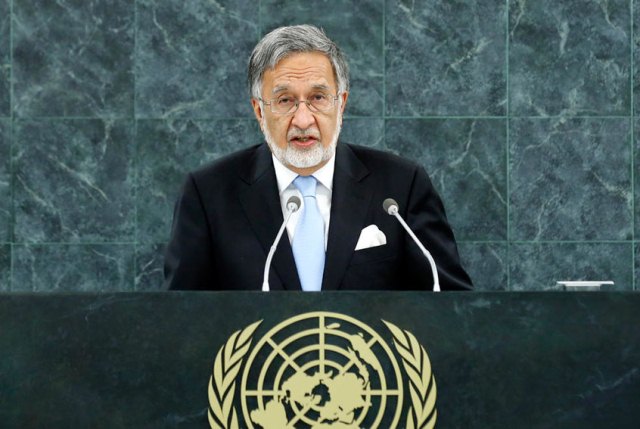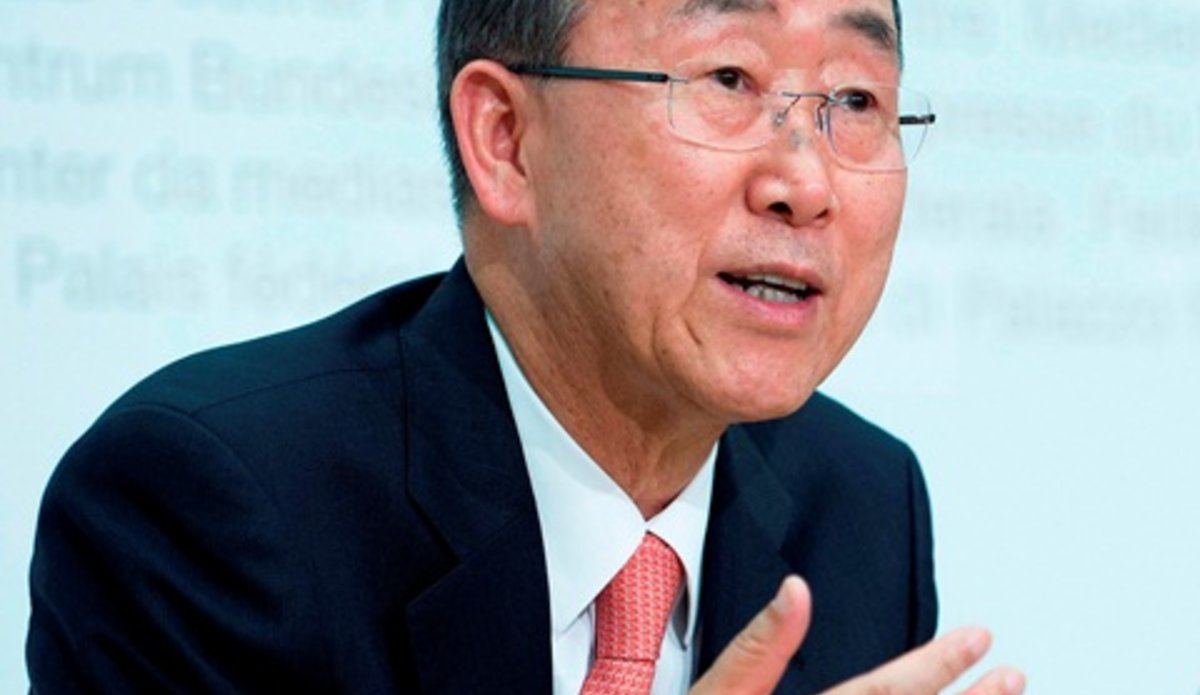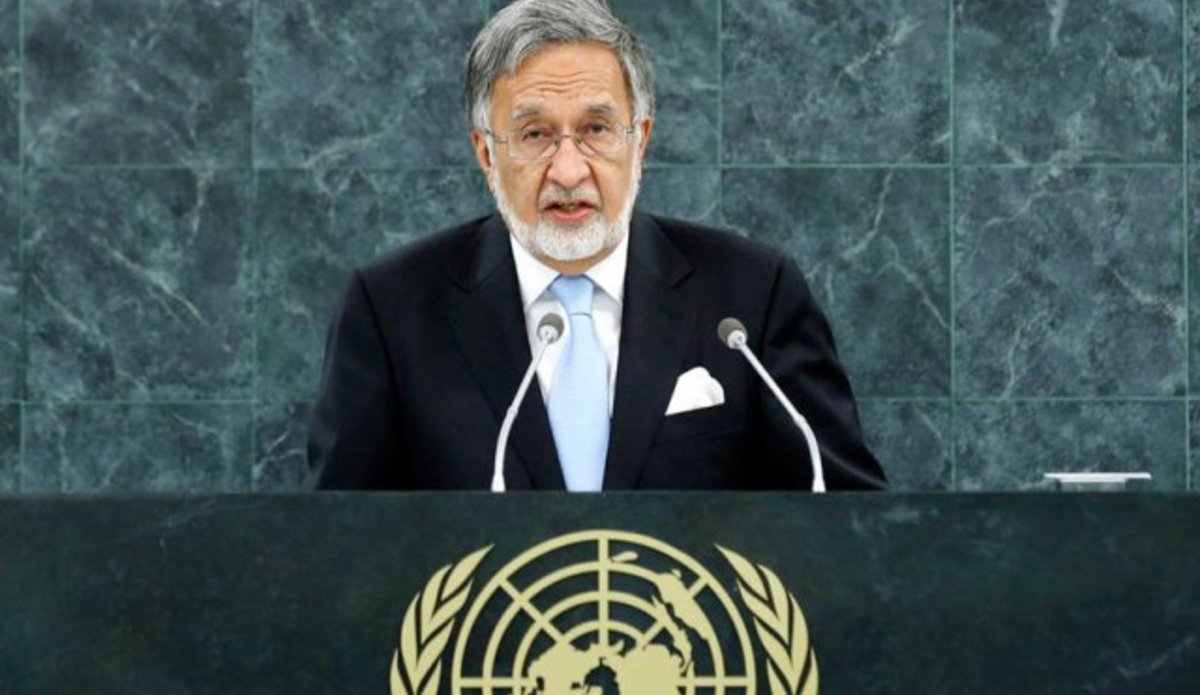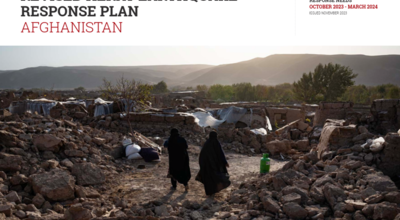In meeting with Afghan Minister, UN chief highlights ‘critical importance’ of next year’s polls
NEW YORK - United Nations Secretary-General Ban Ki-moon highlighted the "critical importance of credible Afghan-led” elections in Afghanistan’s 2014 presidential poll during his meeting with the country’s Foreign Minister at UN Headquarters in New York on Friday.
“He reiterated his support for an Afghan-led, inclusive political solution to the conflict, noting the importance of regional cooperation in this respect,” according to the Office of the Spokesperson for the Secretary-General.
In the meeting with the Afghan Foreign Minister, Zalmai Rassoul, on the sidelines of the General Debate of the 68th Session of the world body’s General Assembly, the UN chief also underlined “the steadfast commitment” of the UN to Afghanistan through 2014 and beyond.
Scheduled to take place on 5 April next year, the presidential election will mark the transfer of power from one elected president to another elected president for the first time in Afghanistan’s history. Provincial Council elections are also slated to take place on the same day.
UN officials have previously stated that next year’s polls are critical to future stability of Afghanistan and continued international support.
During his meeting with Minister Rassoul, the Secretary-General also highlighted the importance of the ongoing security transition, in which Afghan security forces are taking over from international allies the responsibility for securing the country. International military forces are ending their combat role by the end of 2014.
Another topic featured in the meeting between the two men was developments relating to the Afghanistan Independent Human Rights Commission, for which President Hamid Karzai recently appointed five new commissioners, prompting strong reaction from national and international human rights organizations, including the UN Office of the High Commissioner for Human Rights (OHCHR).
During her visit to Afghanistan earlier this month, the UN High Commissioner for Human Rights, Navi Pillay, warned that there are “real concerns” that the appointment process was “sufficiently flawed” for it to lose its ‘A’ status under the Paris Principles, an international peer-run system of accreditation for national human rights bodies, which now exist in more than 100 states worldwide.

“The Secretary General expressed the view that it was essential for the Commission to retain its high level of integrity,” the Secretary-General’s Spokesperson’s Office said in its communication to the media.
The UN chief also raised over the past few days the issue of Afghanistan in bilateral meetings with the foreign ministers of some of the South Asian country’s neighbours – Kyrgyzstan, Turkmenistan and Kazakhstan – as well as at a meeting of the Organization of Islamic Cooperation (OIC).
“The Secretary-General expressed appreciation for Turkmenistan’s contributions towards stability and development in Afghanistan,” the Secretary-General’s Spokesperson’s Office said in a separate communication to the media on Saturday. In another, the Spokesperson’s Office said that Mr. Ban and the Kyrgyz Foreign Minister noted the situation in Afghanistan and Kyrgyzstan’s contribution to overall peace and stability efforts.
In his message to the OIC meeting, Mr. Ban said Afghanistan needs international support “as it faces a crucial transition next year.”
“Efforts to enhance regional cooperation and build trust are key to the future stability of the country and its neighbours,” said Mr. Ban, in addition to expressing appreciation for the OIC’s ongoing contributions in Afghanistan and the region.
Separately, in his speech to the UN General Assembly on Friday, the Afghan Foreign Minister highlighted a range of challenges his country is facing as well as its achievements over the past decade.
“We will not realize the full potential of our citizens or achieve true and lasting peace and security in Afghanistan or the wider region until we’ve dealt decisively against the brutality and evilness of the terrorists who try to harm us everyday,” said Minister Rassoul.
On next year’s elections, he said the Afghan Government is doing “everything possible to ensure free, fair and credible elections.”
“A successful presidential election will entrench our democratic process and greatly contribute to our efforts towards lasting peace, security and prosperity,” he continued.
Mr. Rassoul also thanked the UN for being “a reliable partner in helping us come this far.”
“As we prepare to embark upon the Transformation Decade (2015-2024), we expect the organization to continue its support through a renewed approach that reinforces Afghanistan’s leadership and ownership,” he added.
Also at UN Headquarters on Friday, the UN Deputy Secretary-General, Jan Eliasson, addressed a high-level meeting of the UN Regional Centre for Preventive Diplomacy for Central Asia (UNRCCA), saying that while the Central Asia region is understandably apprehensive about the possible impact of the security and civilian transitions in Afghanistan, the UN will continue to support an environment conducive to peace in the country, including through technical assistance for next year’s elections.
“We will also continue collaborative efforts to tackle the illicit economy and counter the cross-border trade in narcotics and precursors to improve security in Afghanistan and throughout the region,” Mr. Eliasson said, adding that the UN Assistance Mission in Afghanistan (UNAMA) and UNRCCA will also continue to promote regional cooperation on trade, transport, energy and infrastructure.
 UN
UN










